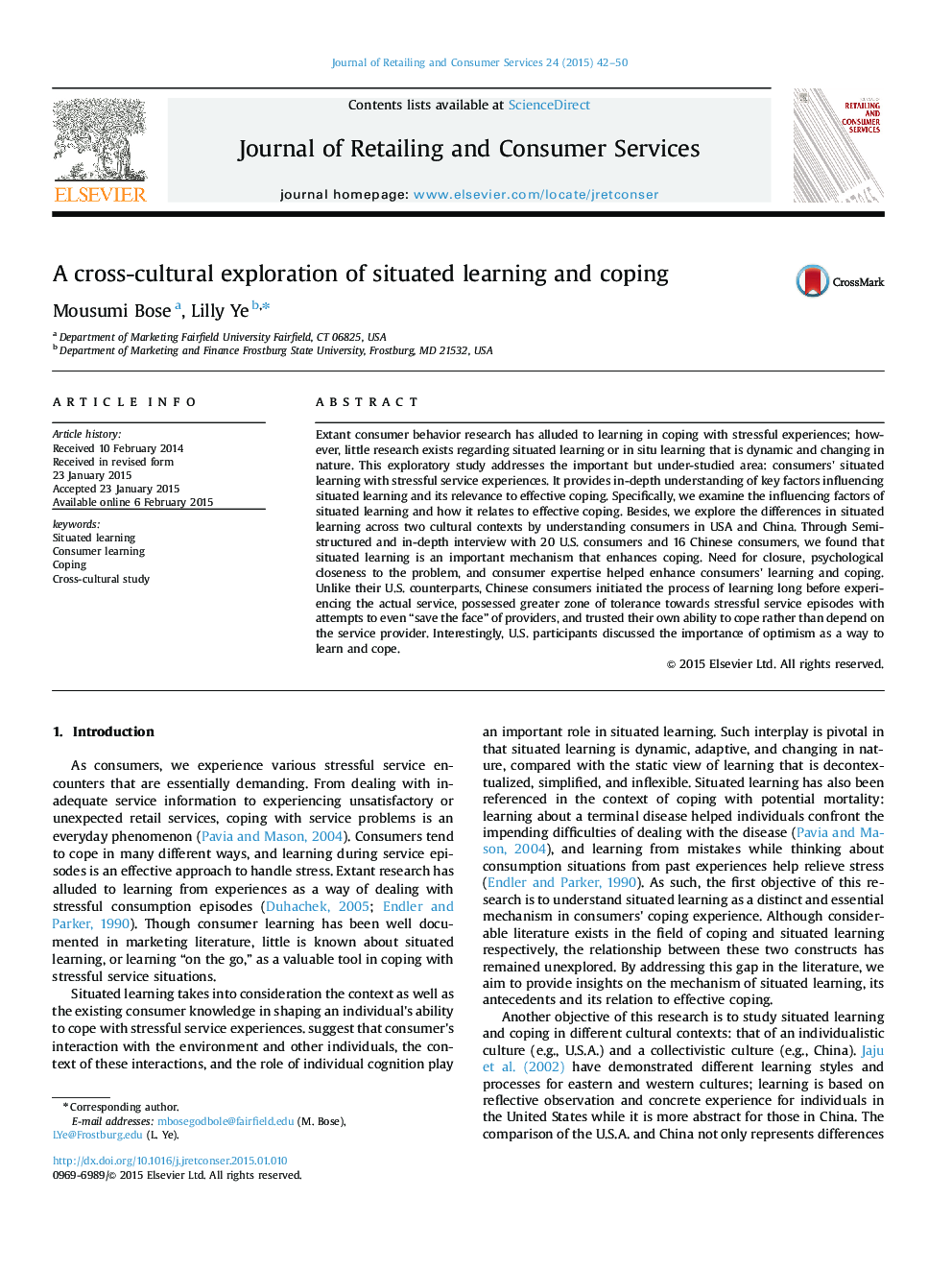| Article ID | Journal | Published Year | Pages | File Type |
|---|---|---|---|---|
| 1028813 | Journal of Retailing and Consumer Services | 2015 | 9 Pages |
•Situated learning is an important mechanism that enhances coping.•Need for closure, psychological closeness to the problem, and consumer expertise helped enhance consumers' learning and coping.•Chinese consumers trusted their own ability to cope rather than depend on the service provider.•Chinese consumers possessed greater zone of tolerance towards stressful service episodes with attempts to even “save the face” of providers.•U.S. participants discussed the importance of optimism as a way to learn and cope.
Extant consumer behavior research has alluded to learning in coping with stressful experiences; however, little research exists regarding situated learning or in situ learning that is dynamic and changing in nature. This exploratory study addresses the important but under-studied area: consumers' situated learning with stressful service experiences. It provides in-depth understanding of key factors influencing situated learning and its relevance to effective coping. Specifically, we examine the influencing factors of situated learning and how it relates to effective coping. Besides, we explore the differences in situated learning across two cultural contexts by understanding consumers in USA and China. Through Semi-structured and in-depth interview with 20 U.S. consumers and 16 Chinese consumers, we found that situated learning is an important mechanism that enhances coping. Need for closure, psychological closeness to the problem, and consumer expertise helped enhance consumers' learning and coping. Unlike their U.S. counterparts, Chinese consumers initiated the process of learning long before experiencing the actual service, possessed greater zone of tolerance towards stressful service episodes with attempts to even “save the face” of providers, and trusted their own ability to cope rather than depend on the service provider. Interestingly, U.S. participants discussed the importance of optimism as a way to learn and cope.
